

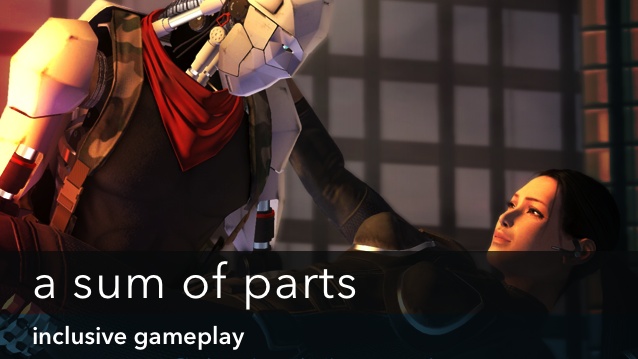
Binary Domain tries to distinguish itself from every other squad-based cover shooter with a couple of interconnected gimmick mechanics: a ‘trust’ system that determines whether or not your squad mates will obey your orders, and voice-recognition software that, theoretically, allows the player to actually bark orders at these squad mates through a microphone.
I call these ‘gimmicks’ but maybe that is unfair. As the game starts, they certainly both feel like gimmicks, completely unrelated to the central gameplay of shooting limbs off robots. However, as the game progresses towards its conclusion, these two gimmicks are able to affect my attachment to the game and its characters in interesting, subversive ways.
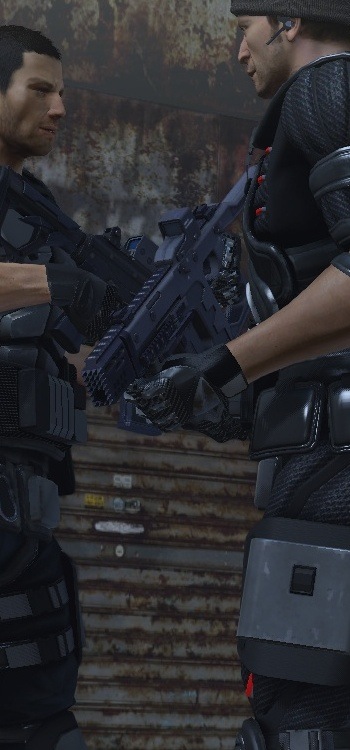 I want to spend the last two Sum of Parts this month talking about just how these two ‘gimmicks’ covertly affected my engagement with the game. The two systems are really intermingled, but I’ll hold off talking about the voice-recognition software directly until next week and instead look today more directly at the trust system.
I want to spend the last two Sum of Parts this month talking about just how these two ‘gimmicks’ covertly affected my engagement with the game. The two systems are really intermingled, but I’ll hold off talking about the voice-recognition software directly until next week and instead look today more directly at the trust system.
Through the game, trust can be built with all the different members of the Rust Crew. In the game’s opening chapters, the team doesn’t really feel like a ‘team’ at all, but rather a disparate bunch of operatives who really don’t get on at all. As they go through stuff together, though, they gradually come to feel more and more cohesive, both in the game’s cut-scenes as well as how they interact with each other during skirmishes.
Trust can be built in a variety of ways. You can respond to a character’s inquiries in a positive way. You can choose to approach a certain battle in a way that a squad mate suggests. You can simply kill a lot of robots very quickly, proving your prowess. As you impress your squad mates, a little blue arrow appears and lets you know they trust you that little bit more.
Conversely, telling them what they don’t want to here, ignoring their suggestions, failing during a battle, or accidentally shooting them, will cause the red arrow to appear as their trust of you drops.
For the vast majority of the game, none of this really matters. Without even putting in an effort, it is very easy to build trust within the Rust Crew. Simply play through the game and say the obvious right answers to inquiries, and you are on your way up. Truly, for most of the game, I didn’t even notice what the trust between the squad members was contributing to the game. I just gave an order and it was fulfilled. I collapsed and someone would run over and get me back on my feet. It just… worked.
But then, towards the end of the game this all changed. After Dan found out Faye was a hybrid person and that she would have to be exterminated, he has a falling out with the rest of the Rust Crew. The rest of the team, including Bo, suddenly distrust Dan. They see him as a disgusting ‘scraphead lover’. The trust that I had worked throughout the game to build up through all those trivial conversations has suddenly and instantly plummeted over the space of a cut-scene.
Everyone hates me. What is fascinating about this is that for the next few skirmishes, I legitimately feel excluded from the group. I try to give an order and nobody listens to me. I collapse and, despite calling for help, am forced to use my own medkit to revive myself. Once, I manage to take out four robots in quick succession. My trust goes up with Rachael, but all she says is: “Huh. Didn’t expect that from you.” Even the praise is poisonous.
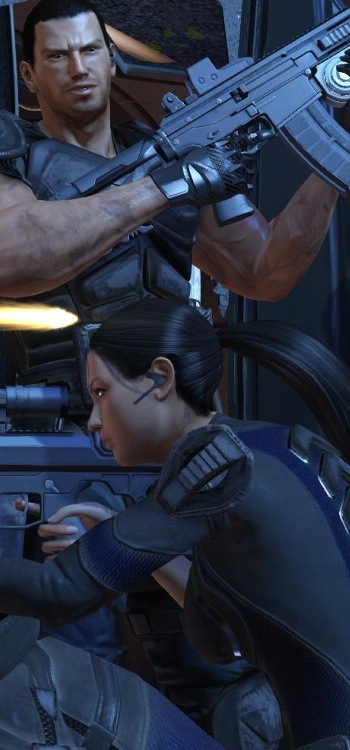 Suddenly, the seemingly tacked-on gimmick has fundamentally altered my relationship with these characters. It’s not that they were simply pissed off at me in a cut-scene and then exactly the same during actual play. Instead, what happened in the cut-scene where they had a falling out permeates my play through the trust system. By pulling away the relationships I had, to that point, taken for granted, Binary Domain showed me what it is like to be excluded from a group simply for having different opinions.
Suddenly, the seemingly tacked-on gimmick has fundamentally altered my relationship with these characters. It’s not that they were simply pissed off at me in a cut-scene and then exactly the same during actual play. Instead, what happened in the cut-scene where they had a falling out permeates my play through the trust system. By pulling away the relationships I had, to that point, taken for granted, Binary Domain showed me what it is like to be excluded from a group simply for having different opinions.
Things continue like this for a while until one thing leads to another and, by the final battle of the game, Delta Force have welcomed Dan back as one of their own and join forces to defeat the game’s final boss. Here, in the final boss, the game’s trust system is artificially altered once again so that my relationship with each character is on maximum trust. In this battle, we work together. I give orders and they are executed immediately. I am helped up when I fall. I am regularly given encouragement during the battle. Eventually, we defeat the boss. Together.
Some players will be bothered that, ultimately, it isn’t up to the player how much the other characters trust them, that the game decides for itself at certain points how much you are or are not trusted. But for me, I think it worked magnificently. For the first three-quarters of the game, the trust system was entirely dependent on my behaviour—so much so that it was a mechanic I could more or less ignore. But then, as the plot evolved in the final act, this mechanic was sitting there that the game could subvert and take advantage of to create a stronger affiliation between myself and the narrative. I wasn’t just told in a cut-scene that Dan was momentarily excluded from the gang. I felt that exclusion through my comprehension of the trust mechanic.
Binary Domain’s trust system presents itself as a gimmick—something easily ignored for inconsequential. Then, before I know it, it has become central to my engagement with the game, greatly affecting my relationships with my squad not just mechanically, but emotionally, allowing me to feel Dan’s exclusion, not just witness it.
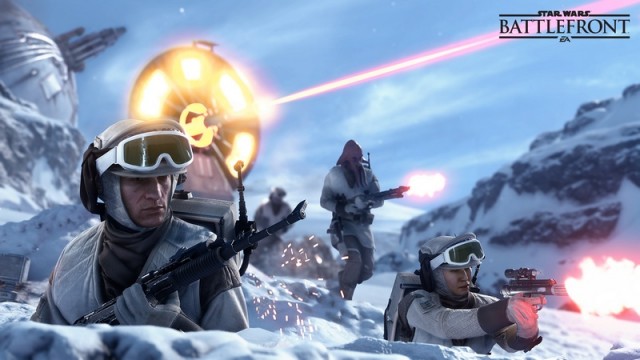
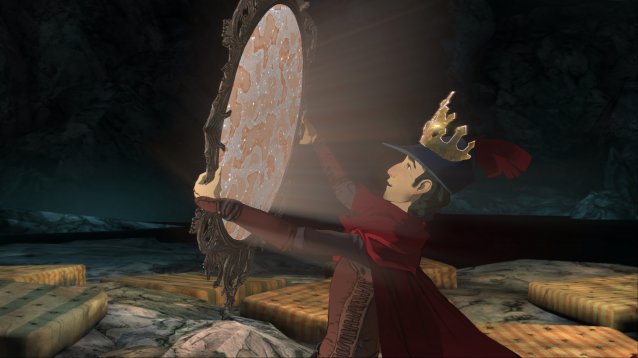

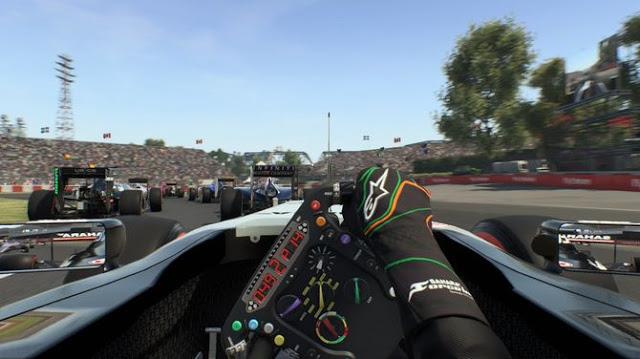
 PES 2016: Strategy guide
PES 2016: Strategy guide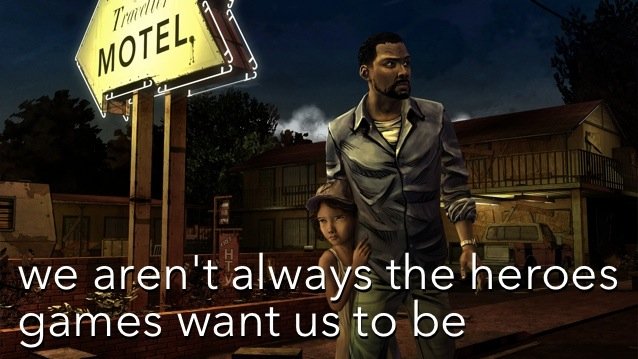 We Arent Always The Heroes Games Want Us To Be
We Arent Always The Heroes Games Want Us To Be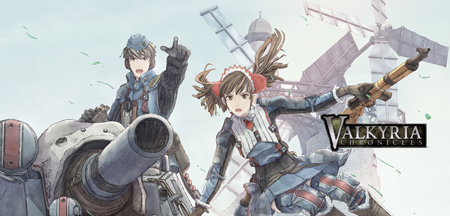 How to fix Valkyria Chronicles PC Launch Issues, Crashes, Sound issue, video card errors and more
How to fix Valkyria Chronicles PC Launch Issues, Crashes, Sound issue, video card errors and more How to Get Game Controllers Running on Linux
How to Get Game Controllers Running on Linux Samurai Warriors 4-II: How to Get All Rare Weapons
Samurai Warriors 4-II: How to Get All Rare Weapons